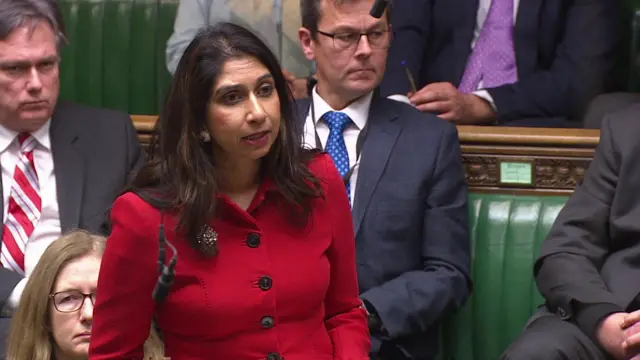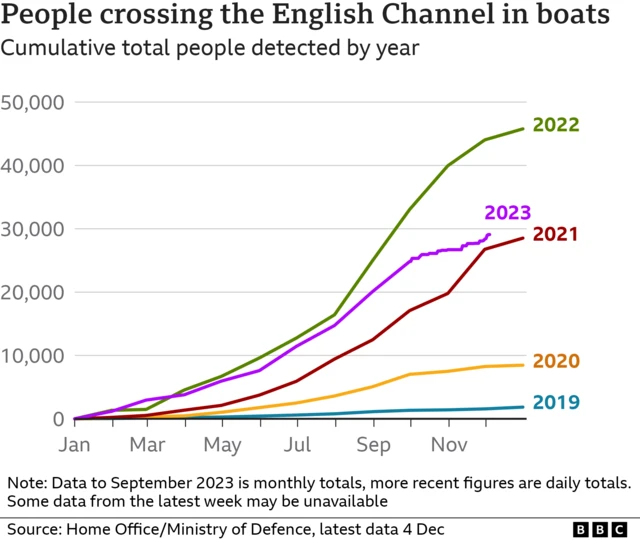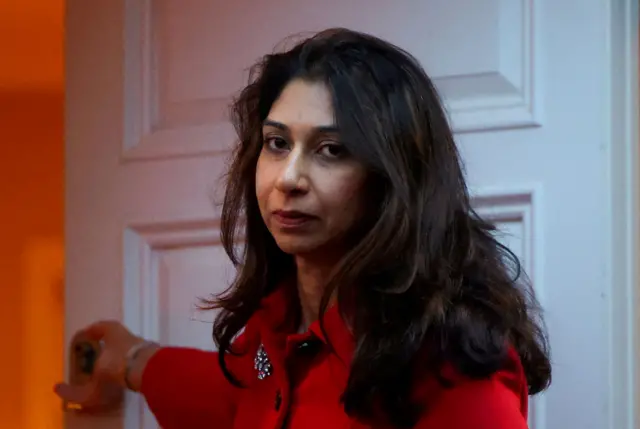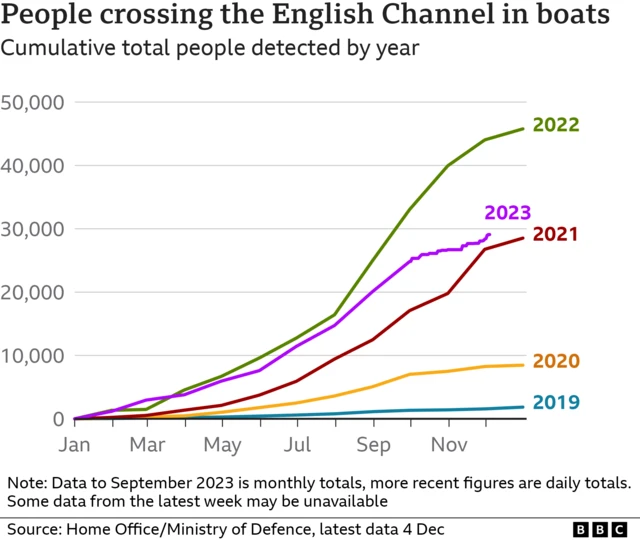What happened today?published at 15:57 GMT 6 December 2023
We're closing our live coverage of some lively moments in Parliament over the the thorny issue of migration. Thanks for joining us - here's a quick recap:
- Prime Minister's Questions today largely focused on the issues surrounding the newly signed treaty with Rwanda - which is part of ihe government's plan to send some asylum seekers to the African country.
- Sunak said it doesn't come with extra costs - but Starmer said the new treaty states the UK will have to pay for asylum seekers' accommodation and upkeep for five years, on top of the £140m already paid
- Starmer called the policy a "gimmick" - but Sunak accused him of not really wanting to stop the boats crossing the Channel, adding that an effective deterrent is needed
- Suella Braverman later addressed the Commons, three weeks after being sacked as home secretary by Sunak - her personal statement focused on advancing a bill to ensure the Rwanda plan can go ahead
- She said the Conservative Party would face "electoral oblivion" if it introduced a bill "destined to fail"
As a reminder, the government's plan to send some asylum seekers to Rwanda was declared unlawful by the UK Supreme Court in November - two days after Braverman was sacked. But Home Secretary James Cleverly signed a new treaty with Rwanda yesterday and details of a new government bill about it are expected shortly. You can read our latest story on it here.
Today's page was written by Francesca Gillett, Chas Geiger, Jaqueline Howard and Barbara Tasch. It was edited by Heather Sharp, Paul Gribben and Robert Corp.






